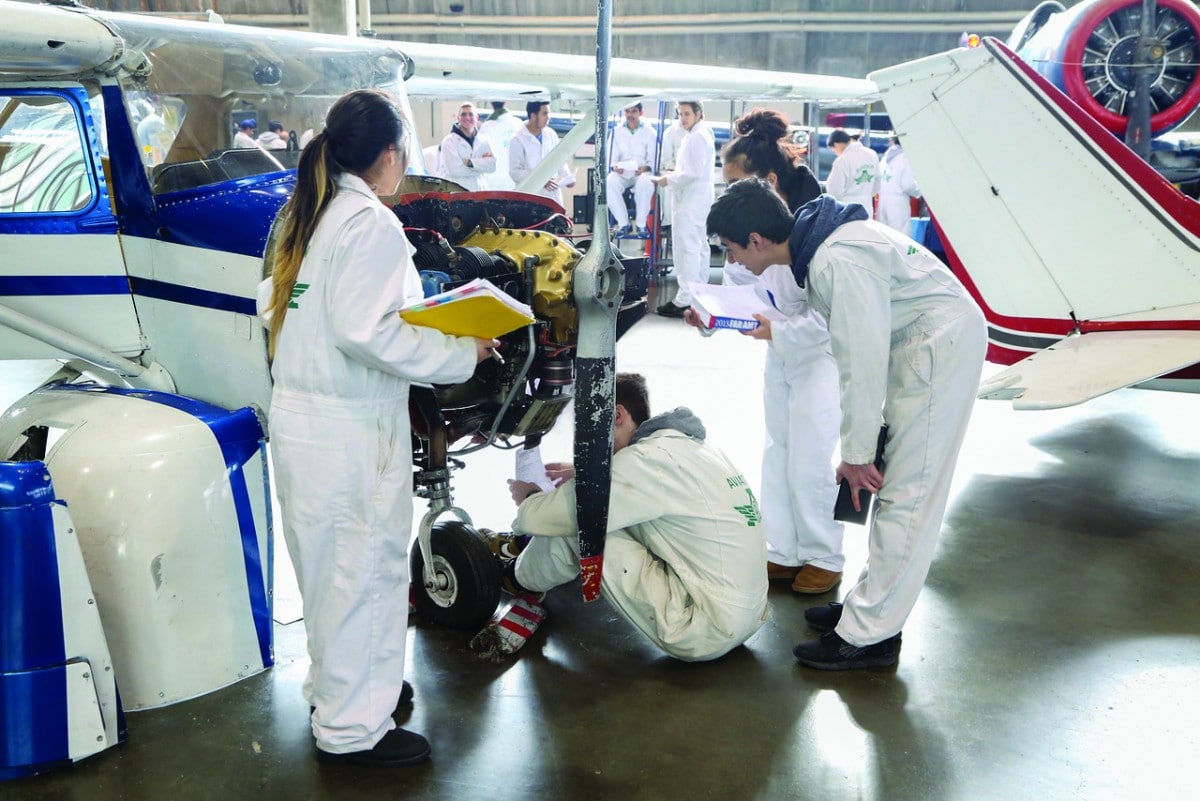Made In America: $75 Million Grant Helps Students Gain Technical Skills Employers Need
When you back up a commitment with $75 million, people tend to pay attention. I’m certainly paying attention to New Skills for Youth (NSFY), the $75 million grant initiative sponsored by JPMorgan Chase to change the way we approach career and technical education in the U.S.
NSFY is a partnership among JPMorganChase, the Council of Chief State School Officers (CCSSO) and Advance CTE. Working together, these business and education leaders want to help young people get the skills they need to find work in challenging, well-paying fields. What has spurred such a high-powered partnership?
Sarah Steinberg, Vice President of Global Philanthropy at JPMorgan Chase, says one factor is the lack of qualified employees for skilled jobs. “We started hearing this from our clients some years back, as the economy was coming out of the 2008 recession. They can’t fill the skilled positions they have available. Which makes it very difficult to plan for the future.”
In fact, one-third of U.S. employers have job openings they can’t fill. At the same time, too many young people can’t find work. As of March 2016, the youth unemployment rate was over 15% for 16- to 19-year-olds, and 8% for 20- to 24-year-olds. So there are jobs and there are unemployed workers. Why aren’t they meeting?
The answer is skills. Skills needed for many of today’s technically oriented jobs in healthcare, manufacturing and IT. Skills that young people simply lack. “We see it in the communities where we work,” notes Steinberg, “Too many young people are getting off track before they even leave high school.”
CCSSO’s Executive Director, Chris Minnich, says state education officials see the same thing. “Looking at the data, we can see that kids aren’t necessarily going to college right away, but they don’t have the skills they need for jobs either. Even if they’re getting certificates, they aren’t prepared, or they’re prepared for jobs that existed 20 years ago.”
New Skills for Youth will help students get skills that match today’s economy via two grant components. The first, overseen by CCSSO and Advance CTE, distributes money directly to states, first for planning (NSFY awarded planning grants to 24 states plus the District of Columbia on March 30), then for implementation, (Around 10 states will receive implementation grants in October.)
The grant money will help states create a sustainable system where employer partners advise on in-demand, well-paying jobs and education partners develop challenging, high-quality training programs that lead to those jobs.
Related Article: Georgia Launches Apprenticeship Program to Tackle Skills Gap[p][/p]
The second grant component is administered directly by JPMorgan Chase. The company will identify “global innovation sites” — cities and school districts around the world that are already working on improving K-12 career and technical education. The NSFY grant money will accelerate their progress, and create models other communities can use. The company will distribute grants to global innovation sites on a rolling basis, funding around 10 sites.
NSFY will develop and showcase exemplary systems from which other states, districts and cities can borrow. Systems where career and technical education is embedded in the high school curriculum, and available to all students. And where students know their options, and leave high school with real skills and credentials. The company will distribute grants to global innovation sites on a rolling basis, funding around 10 sites. NSFY will develop and showcase exemplary systems from which other states, districts and cities can borrow. Systems where career and technical education is embedded in the high school curriculum, and available to all students. And where students know their options, and leave high school with real skills and credentials.
“We’d like to see input from all parties – K-12 education, higher education, workforce systems agencies and employers – to activate CTE for all students, to integrate CTE into the academic core,” says Steinberg. Minnich agrees. “How great would it be if we were talking across sectors – the business community, K-12, community colleges, higher education?” he asks. “CTE needs to matter to all kids, whether or not they’re going to college. All kids need those skills.”
“We need a systems change,” he continued, “every kid needs a broad-based curriculum so they can make good life choices, and also a skills-based curriculum so they can get jobs.” Steinberg echoes this sentiment. “We’re looking at systems-level change,” she noted, “not something that’s only sustainable for the length of a grant.”
“People can still pursue higher education—” she adds, “a two- or four-year degree. But if they have skills, they can work before, during or after they get their degrees. Ideally, a person goes in and out of the workforce and education systems all their lives, continually building their credentials and skills.”
New Skills for Youth will prepare all young people to meet that ideal.
SOURCE: Forbes










Leave a Reply
Want to join the discussion?Feel free to contribute!